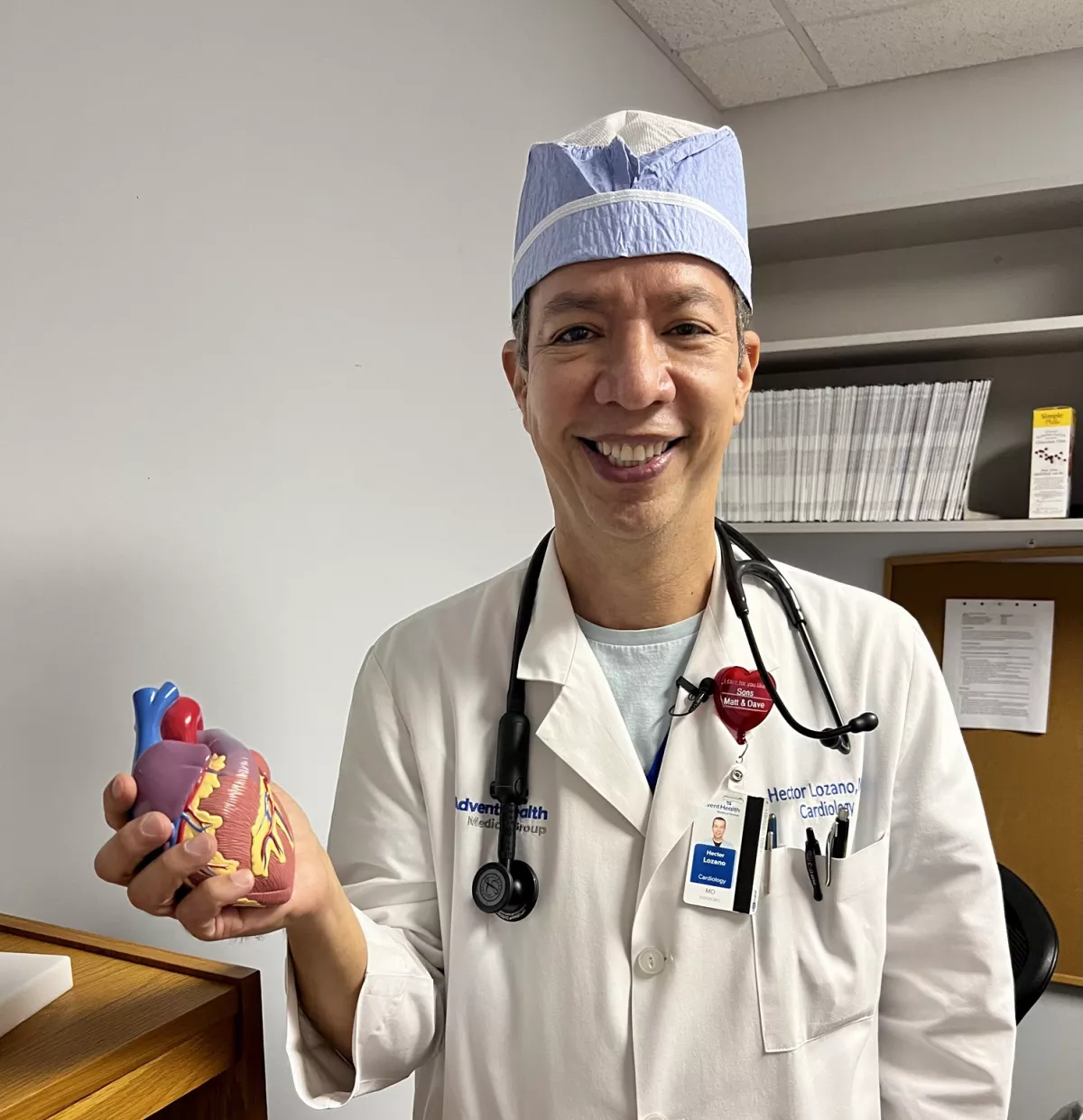- Valezka Gil-Wester

The holidays are a time for joy, celebration and connection, but they can also bring hidden risks to your heart.
From indulgent meals and hectic schedules to emotional moments, the demands of the season may put more strain on your heart than you realize.
In fact, research from the American Heart Association reveals that heart attack rates peak during the last week of December, making it the most dangerous time of year for your heart.

"The increase in heart attacks during the holidays is often due to overindulgence in less nutritious options, excessive alcohol consumption, delayed medical visits and ignored symptoms," said Hector Lozano, MD, a cardiologist and medical director of the vascular ultrasound laboratory at AdventHealth Medical Group.
The AHA reports that Dec. 25, Dec. 26 and Jan. 1 consistently rank as the deadliest days for heart attacks.
Cold weather, high-calorie meals, stress and disrupted routines may all play a role.
Dr. Lozano emphasizes that taking simple, proactive steps can reduce your risk. He offers the following advice:
- Recognize symptoms and act: Heart attack symptoms -- such as chest pain, shortness of breath and fatigue -- should never be ignored, even during the holidays. Call 911 immediately if you experience signs of a heart attack.
- Practice moderation: Enjoy the delicious foods and drinks of the season but do so in moderation. Overeating or drinking too much can place unnecessary strain on your heart.
- Stay active: The AHA recommends at least 150 minutes of physical activity per week. Go for a family walk after dinner or find creative ways to stay active together.
- Manage stress: The holidays can bring emotional challenges as people reflect on loved ones they’ve lost. This nostalgia can sometimes lead to "broken heart syndrome," a condition caused by severe stress or sadness.
- Stick to your medications: People are urged to maintain their medication routines.
- Prioritize preventive care: Dr. Lozano encourages those at higher risk to schedule a checkup. "Men over 45, women over 55 and anyone with high-blood pressure, cholesterol, diabetes or a family history of heart disease should consult their doctor or a cardiologist," he added. "Enjoy the season, but don’t stray too far from healthy habits. Your heart -- and your loved ones -- will thank you."
Recent News
Days before competing in the DAYTONA 500, driver Erik Jones visited a Central Florida elementary school to deliver a big surprise.
Students across seven elementary schools in Kansas received more than 1,500 pairs of new shoes and 3,000 pairs of new socks.
More patients have been helped by an innovative device for stroke survivors at AdventHealth than any other health system in the country.
Ashley Cleverly and Jimmy Cleverly were living a picture-perfect life until a diagnosis left Jimmy Cleverly in need of a kidney. His wife turned out to be his savior.
AdventHealth Centra Care Medical Director Tim Hendrix, MD, explains the symptoms of and the prevention strategies for the "quad-demic" of illnesses going around.
A coalition that supports health-care professionals in achieving personal and professional fulfillment while enhancing patient care has announced its new name.
AdventHealth has reached a major milestone by welcoming its 100,000th team member to the health system’s skilled and compassionate workforce.
The 3D Motion Lab at AdventHealth Sports Med and Rehab Innovation Tower is the only of its kind in Florida.
AdventHealth Cancer Institute Winter Park's infusion center provides a warm and supportive environment, complete with recliners, TVs, nourishment stations and a private room.
AdventHealth Waterman's new boutique offers free wigs to women experiencing medical-related hair loss.
AdventHealth Chief Investment Officer Rob Roy discusses the organization's leadership in environmental sustainability on The Sustainable Finance Podcast.
The degree is designed for nurses aspiring to advance their career.












